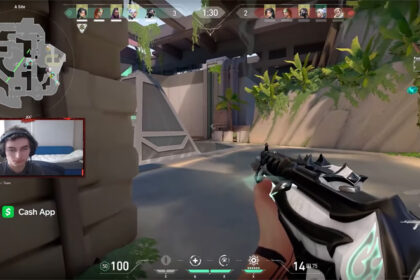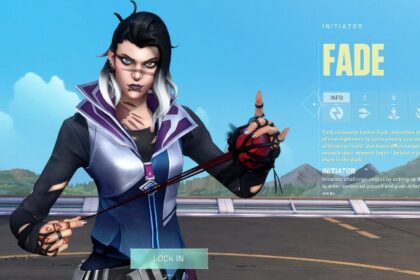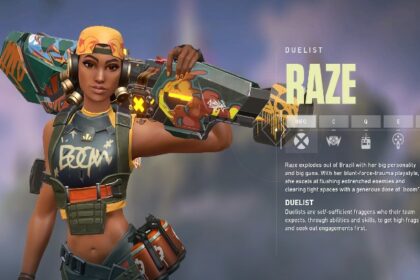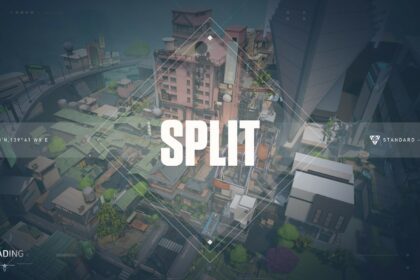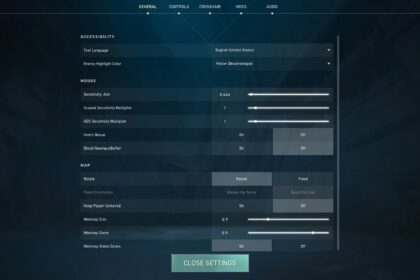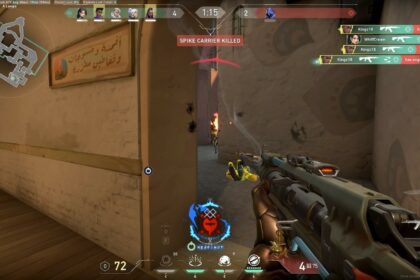Unlike most of the Valorant sensitivity & settings articles that we’ve released, Bumpaah has gone down the route of professional streamer instead of professionally playing. He’s a content creator for SoaR Gaming, a “gaming and lifestyle media brand” that really focuses on content creation for all hungry gaming viewers out there.
What makes Bumpaah compelling to watch isn’t just the attraction of casual viewing, it’s also because he makes a lot of educational content on his YouTube channel.
Just like Bumpaah, we’ll try to be as educational as possible in this article, where we bear Bumpaah’s Valorant sensitivity & settings.
Apart from the rationale behind his settings decisions, we’ll also include his PC setup as a reference for gamers out there who are planning to build their own PCs.
Mouse Settings
| Settings Name | Bumpaah Mouse Settings |
| Sensitivity | 0.285 |
| DPI | 800 |
| Invert Mouse | Off |
| Polling Rate Hz | 1000 |
| Scope Sensitivity | 1 |
| eDPI | 320 |
Bumpaah has a very interesting video about mouse sensitivity and DPI, and it’s specifically in the context of Valorant and first-person shooter games.
The gist of his point-of-view about mouse sensitivity settings is that the average mouse DPI, which is 1600, is very high, and a sensitivity of 0.6 is also incredibly high.
Now, this may be the comfortable setting for you because this is the average figure and this is the DPI of most non-gaming mouse that does not have adjustable DPI. A 2-3 inch flick of a 1600 DPI mouse can easily hover an entire 24-inch screen. That’s how highly sensitive it is. It makes sense in the context of everyday use because it’s quite efficient that way.
The thing is, first-person shooter games require incredible accuracy, delivery, and reaction time of seconds or even milliseconds. By lowering your mouse sensitivity and DPI, you can avoid unnecessary mouse movements. You would need a bit of wrist training though.
Crosshair
Unfortunately for us, Bumpaah hasn’t revealed his crosshair settings. Fortunately, we know crosshair patterns enough to at least assess the settings even through visuals alone.
Bumpaah’s crosshair is actually awfully similar to TenZ’s Valorant crosshair settings, which also don’t have a center dot and outer lines. The inner line length is between 4 to 6, while the inner line thickness and inner line offset are 2 and 3 respectively. Bumpaah also uses cyan as his preferred crosshair color.
The setting of 1/6/2/3 or 1/4/2/3 is actually quite popular, and we do like it too. It’s great for pros and newbies alike, without the need for much adjustment.
Mini Map
| Settings Name | Bumpaah Map Settings |
| Rotate | Rotate/Based on Side |
| Fixed Orientation | Always the same |
| Keep Player Centered | Off |
| Mini Map Size | 1.109 |
| Mini Map Zoom | 0.825 |
| Mini Map Vision Cones | On |
| Show Map Region Names | Always |
Why do a lot of pros like Bumpaah and Boaster like having their mini-map on rotation/based on side?
For those that are new to the game, this mini-map setting might be confusing. Indeed, it can be unclear if you aren’t used to it, and having it on a fixed display is an easy option.
However, by opting to use “rotate”, more experienced players get to have a better awareness of where they are on the map, the directions that they’re taking, and the decisions that they out to make.
Video Settings
| Settings Name | Bumpaah Video Settings |
| Limit FPS on Battery | On |
| Max FPS on Batter | 60.0 |
| Limit FPS in Menus | On |
| Max FPS in Menus | 144.0 |
| Limit FPS in Background | On |
| Max FPS in Background | 30.0 |
| Limit FPS Always | On |
| Max FPS Always | 240.0 |
| Nvidia Reflex Low Latency | On + Boost |
| Multithreaded Rendering | On |
| Material Quality | Low |
| Texture Quality | Low |
| Detail Quality | Low |
| UI Quality | Low |
| Vignette | Off |
| VSync | Off |
| Anti-aliasing | None |
| Anisotropic Filtering | 1x |
| Improve Clarity | Off |
| Bloom | Off |
| Distortion | Off |
| Cast Shadows | Off |
| Resolution | 1920×1080, 16:9 ratio |
| Aspect Ratio Method | Letterbox |
| Display Mode | Fullscreen |
Bumpaah has a fantastic setup that can easily give him more than 240 fps, but why does he opt to cap his framerate to 240?
There are several reasons and advantages for this. The first reason, and probably the main driving force of this decision, is that Bumpaah has a gaming monitor with a 240 Hz refresh rate. We’ll get more into that later.
The second reason is that capping your fps will provide you with a steady and reliable framerate that will not be too prone to tearing. If you have a good PC, you won’t even have to worry about the fps dropping during critical moments like smokes and blinds.
On the other hand, not capping your fps also has its advantages, especially if your hardware is top-notch. There’s no promise of consistent framerates that won’t suddenly drop, but you’ll definitely have higher fps with no input delay or “lag”. For some people, it’s not immediately noticeable; but for those who are sensitive, it can actually affect good gameplay intuition.
PC & Peripherals
Bumpaah’s processor is an Intel Core i7-8700k while his GPU is an Nvidia GeForce RTX 2080. While not exactly the cream of the crop, these are more than enough to run Valorant at high settings with consistently good fps.
Speaking of framerates, Bumpaah uses an Alienware 25 Gaming Monitor with 240 Hz. This monitor is sleek both in looks and in gaming.
You’d be surprised to know that Bumpaah only has 16 GB of RAM and 240 GB SSD… And it’s actually a pleasant surprise.
Bumpaah proves that you won’t have to go all-out on your wallet and PC to play your favorite games enjoyably.

